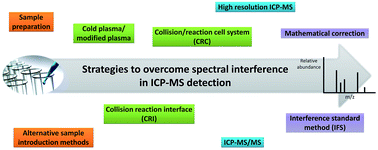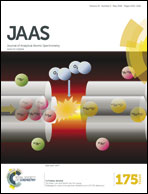Strategies to overcome spectral interference in ICP-MS detection
Abstract
ICP-MS serves as a powerful elemental detection method for accurate and precise analysis, especially for quantification purposes. However, interference from spectral overlap with isobaric and polyatomic species has long hindered accurate analysis. The source of interference can come from the sample matrix, solvent medium or plasma gas which makes the problem more complicated. Simple sample dilution may help to lower the background interference on some occasions, but in some cases, additional sample preparation or even advanced instrumentation is required to alleviate the problem. Although there are various solutions to the problem, spectral interference is mainly matrix dependent and analysis specific. Special attention should be paid when performing the analysis to avoid the formation of new interfering species, potential loss or contamination of target analytes. With the help of the developed approaches, analysis can be done with high accuracy and good precision for elemental determination and isotopic analysis. This paper reviews current and emerging strategies for reducing spectral interference in ICP-MS analysis. The strategies to be reviewed are: non-instrumental approaches, alternative methods of sample introduction, instrumental modification, high resolution ICP-MS and emerging methods (interference standard method and tandem ICP-MS). Most of the cited papers were published during or after 2005.


 Please wait while we load your content...
Please wait while we load your content...